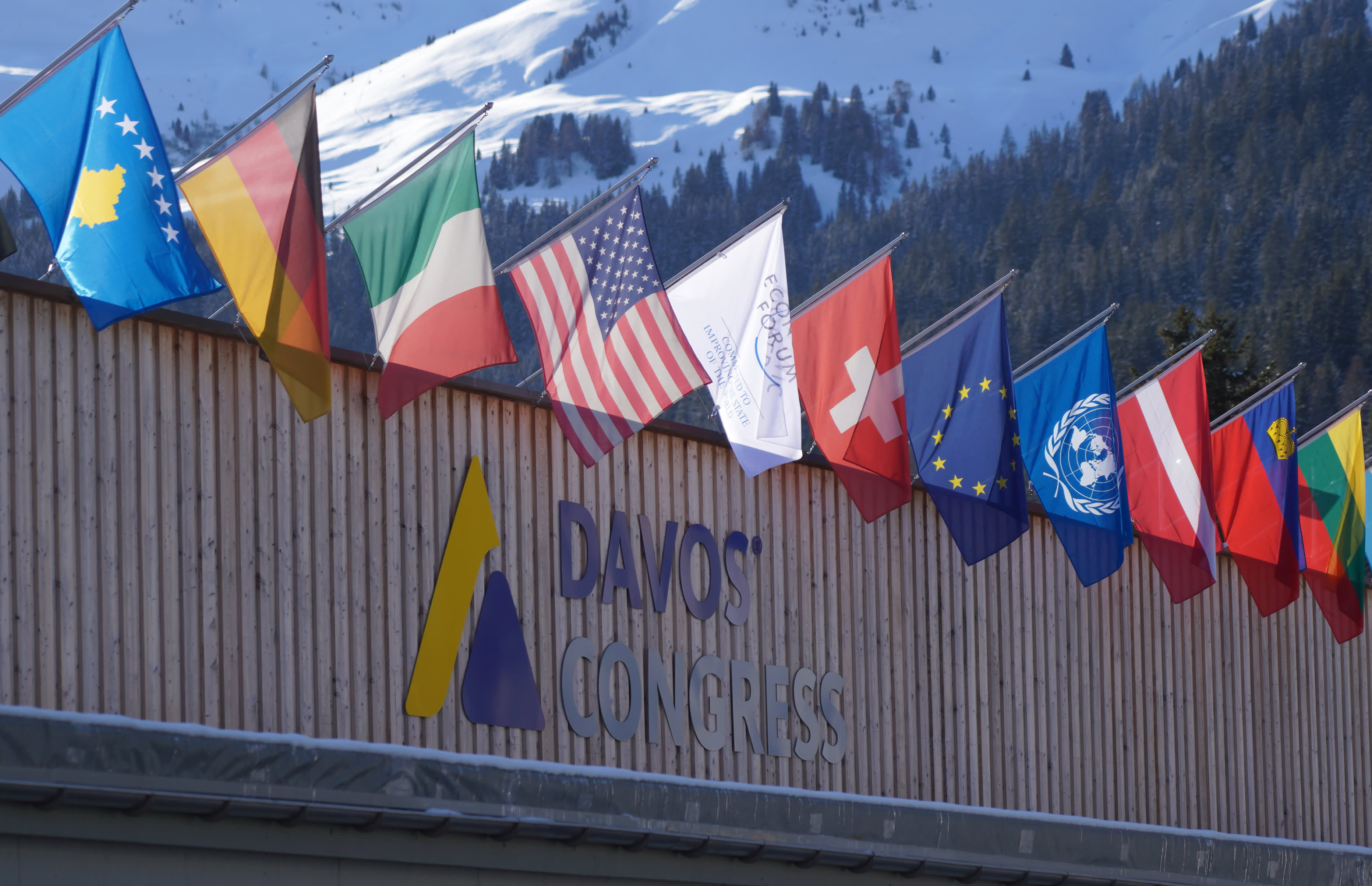
Flags hang over the entrance to the Davos Congress hall during the World Economic Forum in Davos, Switzerland on Jan. 21st, 2020.
Gerry Miller | CNBC
The Joe Biden administration’s latest moves to rejoin global pacts and organizations are likely to be welcome ones for the Davos community.
Still, the U.S. is far from “out of the woods” on its own domestic challenges and its battle with the coronavirus pandemic, World Economic Forum President Borge Brende told CNBC.
“Already, there are new signals from the U.S. administration on the climate side, re-entering the Paris Agreement, but also looking at how the U.S. can be turned into a low carbon economy are major, major steps,” Borge told CNBC’s Hadley Gamble on Sunday. These plus the administration’s decision to halt the country’s withdrawal from the World Health Organization are “well received,” he said.
“But we are still in a situation where there (are) geopolitical confrontations,” the former Norwegian minister said, speaking ahead of the WEF’s Davos Agenda summit this week, which is being held virtually. “There is a fractured world, we’ll see how the U.S.-China relationship will develop in the years to come.”
Some political analysts have pinned the U.S.-China relationship as the single most important geopolitical challenge and question mark for the Biden administration. But domestically, conditions also remain fraught on many fronts and it remains to be seen whether Biden, who pitched his campaign on unity and national healing, can bridge the deep divides that have only worsened over the last four years.
“The reality is that we’re still faced with a very polarized U.S., I don’t think the U.S. is out of the woods when it comes to the pandemic. The numbers are really, really bad,” Brende said. “So there is going to be also a very tough 100 days before President Biden, but I think he’s got a very experienced team with him with his cabinet.”
The U.S. currently has the highest number of confirmed coronavirus cases and the highest reported death count from the pandemic of any country in the world. More than 419,000 people have now died from the disease in the U.S., and it continues to see record case counts, now well over 25 million since the virus was first identified in the country. The vaccination campaign is underway in the country of 330 million, but so far at a slower pace than initially planned.
In the week following his inauguration, Biden signed a raft of orders to speed up vaccine distribution, increase testing and mandate mask wearing on federal grounds. The president now faces new and rapidly spreading variants of the virus as well as parts of the population that oppose coronavirus restrictions and distrust vaccination.
“I think there are now some lights in the end of the tunnel in general, not at least because of the vaccination and the rollout,” Brende said. “But it’s taking time, we just have to hope that the new variants are not immune (to the vaccines).”




